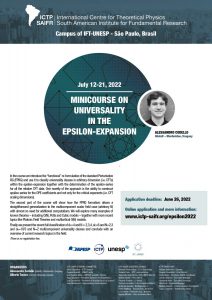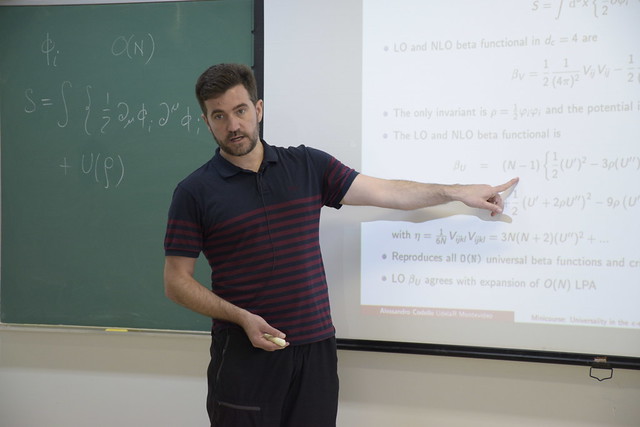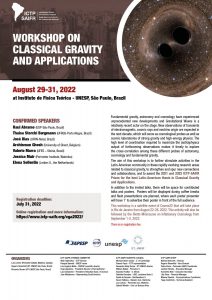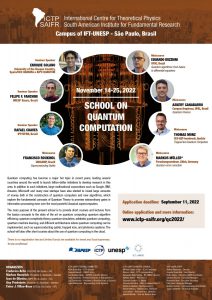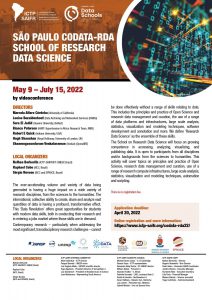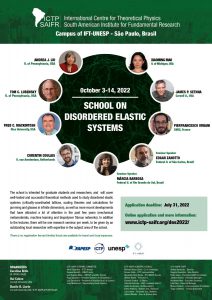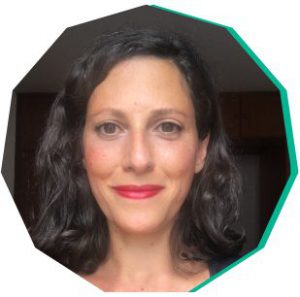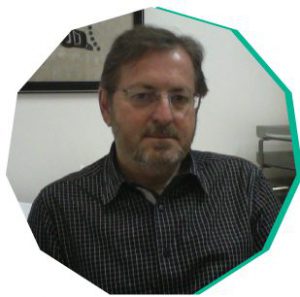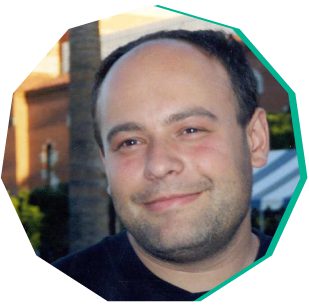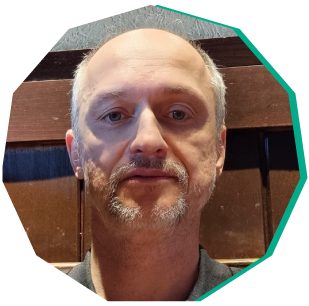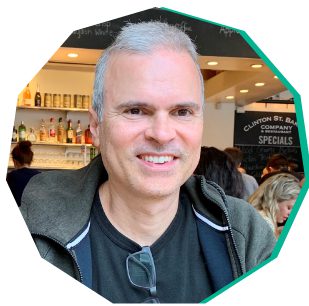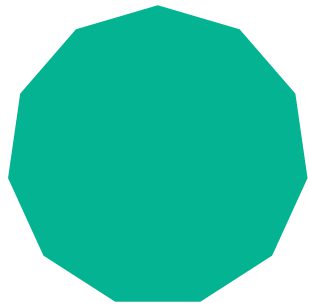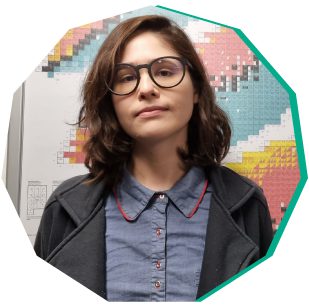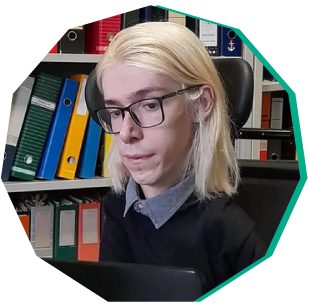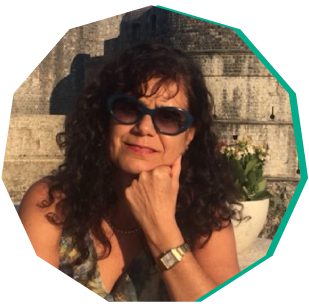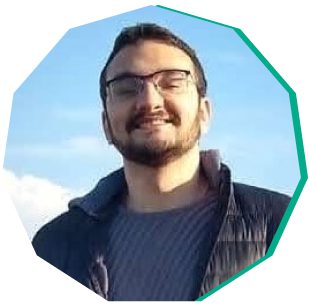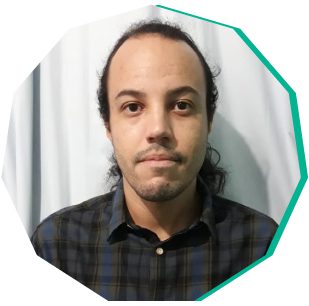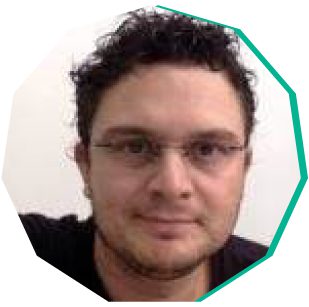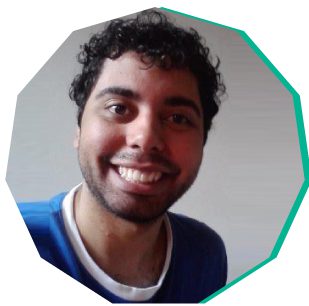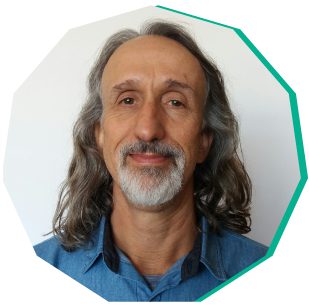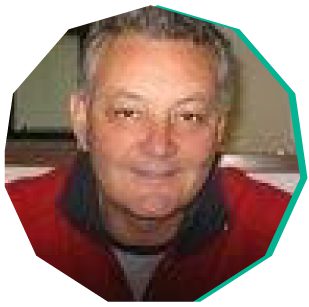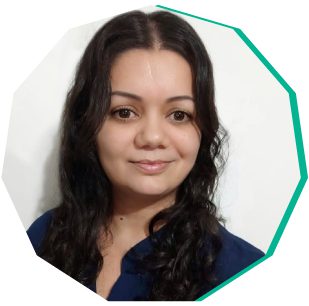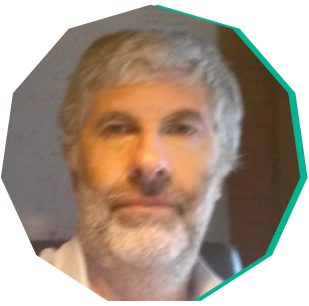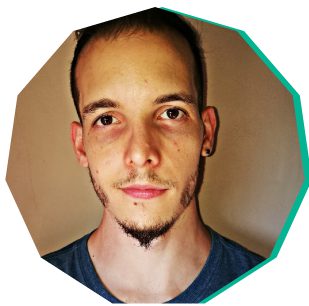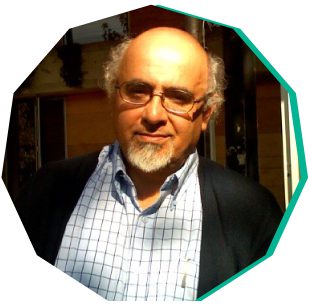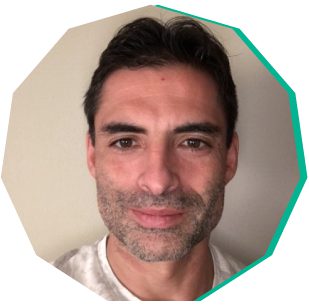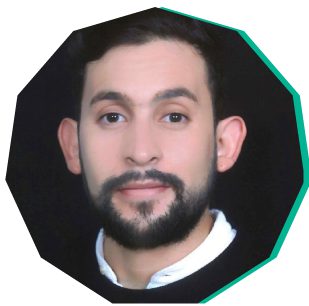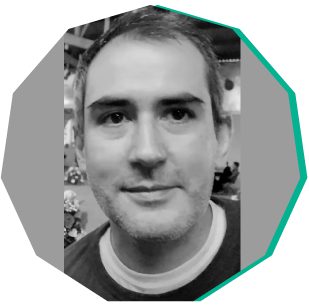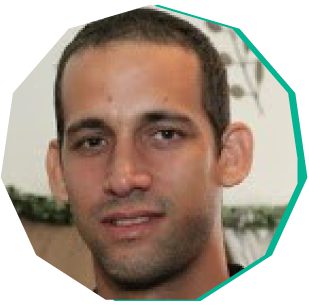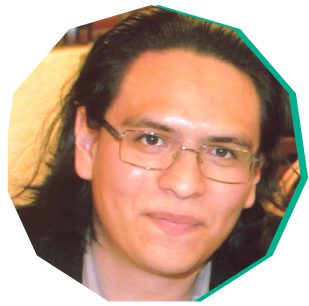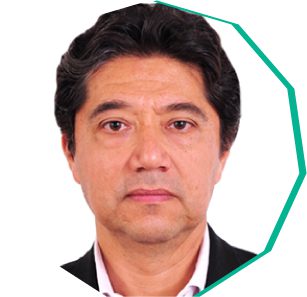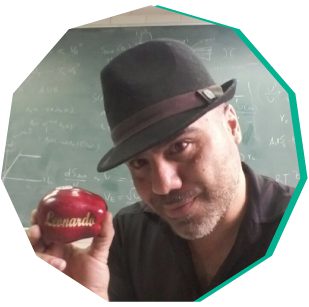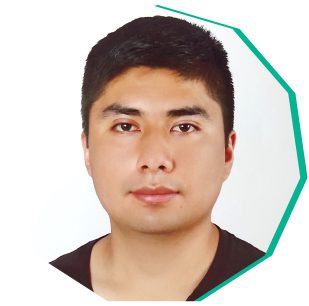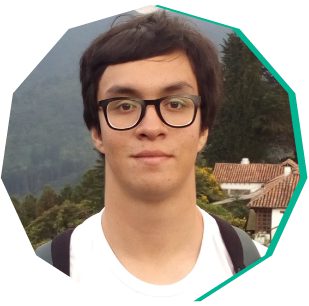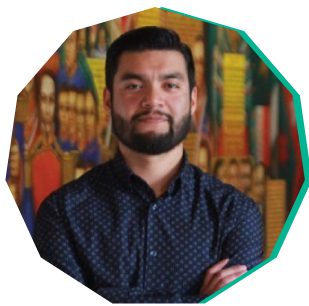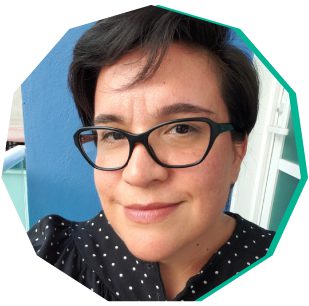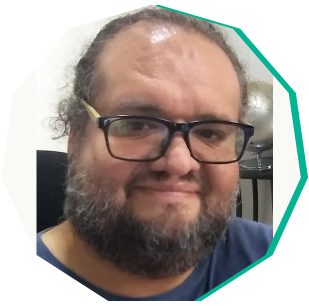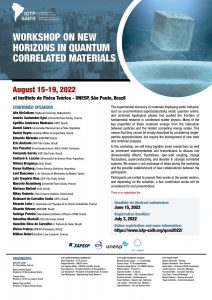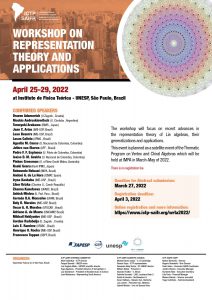Search Results
FAPESP Postdoctoral Positions in Classical Gravity and Cosmology
The ICTP South American Institute for Fundamental Research (ICTP-SAIFR), located at the campus of the Instituto de Física Teórica (IFT-UNESP) in São Paulo, announces the opening of one or more FAPESP postdoctoral positions to begin any time in 2023 in the area of classical gravity and cosmology.
ICTP-SAIFR has a strong gravity group with faculty members Rogerio Rosenfeld and Riccardo Sturani, and a large group of associate members and postdocs and graduate students. IFT-UNESP is near the universities of USP and UFABC which also have very strong cosmology groups, making São Paulo a vibrant research location.
The FAPESP postdoctoral fellowships pay an annual tax-free salary of 101k Brazilian reais with additional funds for moving costs and travel expenses. The initial contract is for two years, and can be extended for up to four years. Postdocs will also receive ICTP-SAIFR funds to invite visitors and organize activities.
Candidates that wish to start their fellowship before September 2023 should state so in the cover letter and their application will be evaluated as soon as possible.
Review of applications will start as soon as they are received and will continue until the positions have been filled. Although there is no strict deadline, applications should be submitted before December 1, 2022 to receive full consideration. Candidates need to fill out the <a href=”http://www.ictp-saifr.org/sis/newPostStep0.php” target=”_blank” rel=”noopener noreferrer”><span style=”font-size: medium;”><strong>online application form here</strong></span></a>.
Continue Reading | Comments Off on FAPESP Postdoctoral Positions in Classical Gravity and Cosmology
Minicourse on Universality in the Epsilon-Expansion
July 12-21, 2022
ICTP-SAIFR, São Paulo, Brazil
Room 3 of IFT-UNESP
Home
In the course we introduce the “functional” re-formulation of the standard Perturbative RG (FPRG) and use it to classify universality classes in arbitrary dimension (i.e. CFTs) within the epsilon-expansion together with the determination of the epsilon-series for all the relative CFT data. One novelty of the approach is the ability to construct epsilon-series for the OPE coefficients and not only for the critical exponents (i.e. CFT scaling dimensions).
In the single component case, universality classes are represented by renormalizable scalar QFTs with self-interacting potentials of highest monomial φ^m below their upper critical dimensions d_c = 2m/(m -2). For even integers, m ≥ 4 these theories coincide with the Landau-Ginzburg description of multi-critical phenomena and interpolate with the unitary minimal CFTs in d = 2, while for odd m the theories are non-unitary CFTs and start at m = 3 with the Lee-Yang universality class. An important outcome of this functional analysis is the realization of the existence of a new non-trivial family of d = 3 universality classes with upper critical dimension d_c = 10/3.
The second part of the course will show how the FPRG formalism allows a straightforward generalization to the multicomponent scalar field case (arbitrary N) with almost no need for additional computations. We will explore many examples of known theories – including O(N), Potts and Cubic models – together with more recent topics like Platonic Field Theories and multicritical O(N) models.
Finally we present the recent full classification of d_c=4 and N = 2,3,4, d_c=6 and N=2,3 and d_c=10/3 and N=2 multicomponent universality classes and conclude with an overview of current research topics in the field.
There is no registration fee.
Lecturer:
- Alessandro Codello (UdelaR – Montevideo, Uruguay)
Organizers:
- Alessandro Codello (UdelaR – Montevideo, Uruguay)
- Alberto Tonero (Carleton University, Canada)
Satisfaction survey:
Click HERE
Registration
Photos
Program
From 2 – 4 pm on:
- July 12 – L1 – Functional Perturbative RG (1) – Loop expansion, renormalization, upper critical dimensions and beta functionals
- July 13 – L2 – Functional Perturbative RG (2) – Fixed points and classification of one component universality classe
- July 14 – L3 – CFT data in the epsilon expansion
- July 19 – L4 – Multi-component beta functionals with applications to O(N), Potts, Cubic and Platonic field theories
- July 20- L5 – General N RG flows and emergent symmetry
- July 21 – L6 – Classification of N=2 and N=3 universality classes and some new N=4 fixed points. Conclusion and open problems
Videos and Files
Mathematica notebooks: HERE
Slides of the Lectures: HERE
2022-07-12-
14:00 - Alessandro Codello (UdelaR):
Functional Perturbative RG (1) – Loop expansion, renormalization, upper critical dimensions and beta functionals
-
14:00 - Alessandro Codello (UdelaR):
Functional Perturbative RG (2) – Fixed points and classification of one component universality classe
-
14:00 - Alessandro Codello (UdelaR):
CFT data in the epsilon expansion
-
14:00 - Alessandro Codello (UdelaR):
Multi-component beta functionals with applications to O(N), Potts, Cubic and Platonic field theories
-
14:00 - Alessandro Codello (UdelaR):
General N RG flows and emergent symmetry
-
14:00 - Alessandro Codello (UdelaR):
Classification of N=2 and N=3 universality classes and some new N=4 fixed points. Conclusion and open problems
asdasdasd
Additional Information
COVID-19: Fully vaccinated Brazilians and foreigners are now exempt from presenting proof of a COVID-19 test with a negative or non-detectable result. You are only required to present proof of vaccination, printed or electronically. See requirements for travelling to Brazil at https://www.latam.com/
Visa information: Nationals from several countries in Latin America and Europe, Australia, Canada, Japan and USA are exempt from tourist visa. Please check here which nationals need a tourist visa to enter Brazil.
Hotel recommendation: http://www.ictp-saifr.org/hotel-recommendations-2.
How to reach the Institute: The minicourse will be held at ICTP South American Institute, located at IFT-UNESP, which is across the street from a major bus and subway terminal (Terminal Barra Funda). The address which is closer to the entrance of the IFT-UNESP building is R. Jornalista Aloysio Biondi, 120 – Barra Funda, São Paulo. The easiest way to reach us is by subway or bus, please find instructions here.
Yellow fever vaccination is recommended for travellers going to Brazil. Note that the vaccine needs to be taken at least ten days before the trip to be effective.
Continue Reading |
Comments Off on
Workshop on Classical Gravity and Applications
August 29-31, 2022
ICTP-SAIFR, São Paulo, Brazil
Auditorium of IFT-UNESP
Youtube live-streaming links:
Home
Fundamental gravity, astronomy and cosmology have experienced unprecedented new developments and Gravitational Waves is a relatively recent actor on the stage. New observations of transients of electromagnetic, cosmic rays and neutrino origin are expected in the next decade, which will serve as cosmological probes as well as cosmic laboratories of strong gravity and high-energy physics. The high level of coordination required to maximize the (astro)physics output of forthcoming observations makes it timely to explore the cross-correlation among these different probes of astronomy, cosmology and fundamental gravity.
The aim of this workshop is to further stimulate activities in the Latin-American community in these rapidly evolving research areas related to classical gravity, to strengthen and spur new connections and collaborations, and to award the 2021 and 2022 ICTP-SAIFR Prizes for the best Latin-American thesis in Classical Gravity and Applications.
In addition to the invited talks, there will be space for contributed talks and posters. Posters will be displayed during coffee breaks and flash presentations are planned, where each poster presenter will have 1′ to advertise their poster in front of the full audience.
This workshop is a satellite event of Cosmo22 that will take place in Rio de Janeiro from August 22-26, 2022.
There is no registration fee.
Organizers:
- Luis Lehner (Perimeter Institute, Waterloo, Canada)
- Rogerio Rosenfeld (IFT-UNESP, São Paulo, Brazil)
- Riccardo Sturani (IFT-UNESP, São Paulo, Brazil)
Confirmed Speakers
Plenary talks:
- Raul Abramo (USP-São Paulo, Brazil): Towards a complete statistical description of LSS on the light cone
- Thaisa Storchi Bergmann (UFRGS-Porto Alegre, Brazil): Black Holes: exotic but ubiquitous in the Universe
- Archisman Ghosh (University of Ghent, Belgium): Fundamental physics and cosmology from gravitational-wave observations
- Valerio Marra (UFES – Vitória, Brazil): ΛLTB N-body simulations: cosmology beyond homogeneity and isotropy
- Jessica Muir (Perimeter Institute, Waterloo): k-Nearest-Neighbor Statistics as a Probe of Modified Gravity
- José Dias do Nascimento Jr. (UFRN, Brazil): Hunting Exoplanets by Gravitational Microlensing
-
Elena Sellentin (Leiden University, the Netherlands): Getting the huge Euclid data set into shape for non-standard cosmological theories
IFT-Colloquium:
- Luis Lehner (Perimeter Institute, Waterloo, Canada): Testing GR with black hole ringdown. Not as simple as it sounds
Gravity Prize:
- Marcos A. Argañaraz (University of Cordoba, Argentina): Double null coordinates and applications in Kerr spacetime
- Carlos Mauricio Correa (University of Cordoba, Argentina): Cosmic voids as cosmological laboratories
- Caroline Guandalin (Queen Mary University of London, UK): Extracting fundamental physics out of the large-scale structure of the Universe
- Iara Ota (ICTP-Trieste/SISSA, Italy): Black hole spectroscopy: prospects for testing the nature of black holes with gravitational wave observations
Contributed talks:
- Pedro Bessa (UFES, Brazil): Testing Gravitational Lensing in an expanding Universe
- João Cavedagne Lobato (UFRJ, Brazil): Generalizing the stochastic gravitational wave signal to Horndeski theories
- Eunice Monyenye Omwoyo (Universidade Federal do Espírito Santo, Brazil): Remarks on the black hole shadows in Kerr-de Sitter space times
- Josiel Mendonça Soares de Souza (Universidade Federal do Rio Grande do Norte, Brazil): Late Time Cosmology with Bright Standard Sirens
- Antonino Troja (UniPD, Italy): The Euclid mission NISP instrument: performances and data simulations
Posters:
- João Paulo Cavalcante (Federal University of Pernambuco, Brazil): Quasinormal modes for Kerr black hole via Painlevé transcendents
- Daniela Grandón (Universidad de Chile, Chile): Bayesian error propagation for neural-net based parameter inference.
- Nicolás Hernández (Industrial University of Santander, Colombia): Newman-Janis Ansatz for rotating wormholes
- Kunihito Uzawa Kwansei (Gakuin University, Japan): De-singularizing the extremal GMGHS black hole via higher derivatives corrections
- Felipe Ignacio Portales Oliva (Universidade Federal do ABC, Brazil): Reconciling classical and quantum electromagnetic radiation through zero-Rindler-energy photons
- Ronaldo César de Paiva (UNESP, Brazil): Scalar Perturbations and Quasinormal Modes of Hairy Black Holes
- Neil Lizander Goyzueta Palomino (Universidade Federal de Itajubá, Brazil): Investigação da existência de bifurcações em modos quasinormais de buracos negros com constante cosmológica
- Mário Raia Neto (UFSCar/INPE, Brazil): Thin Accretion Disks and Black Hole Shadows
- Gabriel Ribeiro (Universidade Federal do Pará, Brazil): Mapping f(R) theories of gravity into General Relativity
- Angie Milena Sanchez (Universidad Industrial de Santander, Colombia): Study of the relationship between the multipolar structure and the mass applied to the spacetime of the Q-metric in Einstein Gravity
- Edson Magno da Silva (São Carlos Institute of Physics – IFSC/USP, Brazil): Insertion of satellites into orbit
- Juan Zárate (Centro Brasileiro de Pesquisas Físicas, Brazil): Anisotropic quark stars in $f(R)= R^{1+\epsilon}$ gravity
Registration
Program
Workshop program: PDF updated on August 30, 2022
Videos and Files
Live: 29.08.2022 – Click Here
Live: 30.08.2022 – Click Here
Live: 31.08.2022 – Click Here
2022-08-29-
11:00 - Valerio Marra (UFES – Vitória, Brazil):
ΛLTB N-body simulations: cosmology beyond homogeneity and isotropy
-
14:00 - Jessica Muir (Perimeter Institute, Waterloo):
k-Nearest-Neighbor Statistics as a Probe of Modified Gravity
-
15:00 - Antonino Troja (UniPD, Italy):
The Euclid mission NISP instrument: performances and data simulations
-
16:00 - João Cavedagne Lobato (UFRJ, Brazil):
Generalizing the stochastic gravitational wave signal to Horndeski theories
-
16:25 - Josiel Mendonça Soares de Souza (Universidade Federal do Rio Grande do Norte, Brazil):
Late Time Cosmology with Bright Standard Sirens
- 16:50 - Pedro Bessa (UFES, Brazil): Testing Gravitational Lensing in an expanding Universe
- 17:15 - Eunice Monyenye Omwoyo (Universidade Federal do Espírito Santo, Brazil): Remarks on the black hole shadows in Kerr-de Sitter space times
-
10:00 - José Dias do Nascimento Jr. (UFRN, Brazil):
Hunting Exoplanets by Gravitational Microlensing
-
11:00 - Thaisa Storchi Bergmann (UFRGS-Porto Alegre, Brazil):
Black Holes: exotic but ubiquitous in the Universe
-
14:00 - Raul Abramo (USP-São Paulo, Brazil):
Towards a complete statistical description of LSS on the light cone
- 15:30 - Carlos Mauricio Correa (University of Cordoba, Argentina): Cosmic voids as cosmological laboratories
- 16:00 - Iara Ota (ICTP-Trieste/SISSA, Brazil): Black hole spectroscopy: prospects for testing the nature of black holes with gravitational wave observations
- 16:30 - Marcos A. Argañaraz (University of Cordoba, Argentina): Double null coordinates and applications in Kerr spacetime
- 17:00 - Caroline Guandalin (Queen Mary University of London, UK): Extracting fundamental physics out of the large-scale structure of the Universe
-
11:00 - Archisman Ghosh (University of Ghent, Belgium):
Fundamental physics and cosmology from gravitational-wave observations
-
14:00 - Luis Lehner (Perimeter Institute, Waterloo, Canada):
Testing GR with black hole ringdown. Not as simple as it sounds
asdasdasd
Photos
Posters
- João Paulo Cavalcante (Federal University of Pernambuco, Brazil): Quasinormal modes for Kerr black hole via Painlevé transcendents
- Daniela Grandón (Universidad de Chile, Chile): Bayesian error propagation for neural-net based parameter inference.
- Nicolás Hernández (Industrial University of Santander, Colombia): Newman-Janis Ansatz for rotating wormholes
- Kunihito Uzawa Kwansei (Gakuin University, Japan): De-singularizing the extremal GMGHS black hole via higher derivatives corrections
- Felipe Ignacio Portales Oliva (Universidade Federal do ABC, Brazil): Reconciling classical and quantum electromagnetic radiation through zero-Rindler-energy photons
- Ronaldo César de Paiva (UNESP, Brazil): Scalar Perturbations and Quasinormal Modes of Hairy Black Holes
- Neil Lizander Goyzueta Palomino (Universidade Federal de Itajubá, Brazil): Investigação da existência de bifurcações em modos quasinormais de buracos negros com constante cosmológica
- Mário Raia Neto (UFSCar/INPE, Brazil): Thin Accretion Disks and Black Hole Shadows
- Gabriel Ribeiro (Universidade Federal do Pará, Brazil): Mapping f(R) theories of gravity into General Relativity
- Angie Milena Sanchez (Universidad Industrial de Santander, Colombia): Study of the relationship between the multipolar structure and the mass applied to the spacetime of the Q-metric in Einstein Gravity
- Edson Magno da Silva (São Carlos Institute of Physics – IFSC/USP, Brazil): Insertion of satellites into orbit
- Juan Zárate (Centro Brasileiro de Pesquisas Físicas, Brazil): Anisotropic quark stars in $f(R)= R^{1+\epsilon}$ gravity
Additional Information
Registration: ALL participants should register. The registration will be on August 29 (Monday) at the institute, from 10:00 am to 11:00 am.
List of Participants: Updated on August 31, 2022
BOARDING PASS: All participants, whose travel has been provided or will be reimbursed by the institute, should bring the boarding pass upon registration. The return boarding pass (PDF, if online check-in, scan or picture, if physical) should be sent to secretary@ictp-saifr.org by e-mail .
COVID-19: Fully vaccinated Brazilians and foreigners are now exempt from presenting proof of a COVID-19 test with a negative or non-detectable result. You are only required to present proof of vaccination, printed or electronically. See requirements for travelling to Brazil at https://www.latam.com/
Visa information: Nationals from several countries in Latin America and Europe, Australia, Canada, Japan and USA are exempt from tourist visa. Please check here which nationals need a tourist visa to enter Brazil.
POSTER: Flash presentations will take place on Monday afternoon. Each poster presenter should prepare one slide. You will have 1′ to advertise your poster in front of the full audience. Additionally, posters will be displayed during coffee breaks and participants who are presenting a poster MUST BRING A BANNER PRINTED. The banner size should be at most 1 m x 1,5m. We do not accept A4 or A3 paper. See here what a banner looks like: http://designplast.ind.
Hotel recommendation: http://www.ictp-saifr.org/hotel-recommendations-2. Participants and Speakers whose accommodation will be provided by the institute will stay at The Universe Flat.
How to reach the Institute: The program will be held at ICTP South American Institute, located at IFT-UNESP, which is across the street from a major bus and subway terminal (Terminal Barra Funda). The address which is closer to the entrance of the IFT-UNESP building is R. Jornalista Aloysio Biondi, 120 – Barra Funda, São Paulo. The easiest way to reach us is by subway or bus, please find instructions here.
Continue Reading |
Comments Off on
School on Quantum Computation
November 14-25, 2022
ICTP-SAIFR, São Paulo, Brazil
Auditorium of IFT-UNESP
Home
Quantum computing has become a major hot topic in recent years, leading several countries around the world to launch billion-dollar initiatives to develop research in this area. In addition to such initiatives, large multinational corporations such as Google, IBM, Amazon, Microsoft and many new startups have also started to invest large amounts of money both in the construction of quantum computers and new algorithms, which explore the fundamental concepts of Quantum Theory to promise extraordinary gains in information processing even over the most powerful classical supercomputers.
The main purpose of the present school is to provide short courses and lectures from the basics concepts to the state of the art on quantum computing: quantum algorithm efficiency, quantum complexity theory, quantum simulators, adiabatic quantum computing, quantum machine learning, and different architectures where quantum computing can be implemented, such as superconducting qubits, trapped ions, and photonics systems. The school will also offer short courses about the use of quantum computing in the cloud.
There is no registration fee and limited funds are available for travel and local expenses.
Organizers:
- Frederico Brito (IFSC/USP, São Carlos – SP)
- Markus Hennrich (Stockholm University, Stockholm – Sweden)
- Ivan de Oliveira (CBPF, Rio de Janeiro – RJ)
- Ana Predojevic (Stockholm University, Stockholm – Sweden)
- Celso J. Villas-Boas (UFSCar, São Carlos – SP)
Satisfaction survey:
- click HERE
Lecturers
Minicourses:
- Askery Canabarro (UFAL, Campus Arapiraca,Brazil): Quantum Finance
- Eduardo Duzzioni (UFSC, Brazil): Quantum algorithms: from basics to differential equations
- Thomas Monz (University Innsbruck, Austria): Trapped Ion Quantum Computers
- Francisco Rouxinol (UNICAMP, Brazil): Superconducting Qubits
Seminars:
- Caslav Brukner (University of Vienna and Institute for Quantum Optics and Quantum Information at Vienna ): IFT-Colloquium: How does a quantum particle see the world?
- Rafael Chaves (IPP/UFRN, Brazil): Characterizing networks and phase transitions with classical and quantum machine learning
- Felipe F. Fanchini (UNESP Bauru, Brazil): Calibrating Question Answering Systems with Quantum Neural Networks
- Markus Hennrich (Stockholm University, Stockholm, Sweden): IFT-Colloquium – Trapped Rydberg ions
- Ivan de Oliveira (CBPF, Brazil): Nuclear Qubits
- Ana Predojevic (Stockholm University, Sweden): Quantum light: generation, characterization, and application
- Enrique Solano (Chief Visionary Officer of Kipu Quantum, Germany and Founder of QUANVIA, Spain)
- Thomas Monz (Innsbruck University and CEO and Co-Founder of AQT)
- Enrique Solano (Chief Visionary Officer of Kipu Quantum, Germany and Founder of QUANVIA, Spain)
- Dario Thober (CEO and Founder – Wernher von Braun Center)
Moderator: Ana Predojevic (Stockholm University)
Posters:
- Tomás Ricardo Basile Álvarez (National Autonomous University of Mexico, Mexico): Weyl Quantum Channels
- Alejandro Gomez Cadavid (Universidad del Valle, Colombia): Qubit Coupled Cluster method for the Fermi-Hubbard model
- Naim Elias Comar (IFUSP, Brazil): Correlations breaking homogenization
- Inés Corte (Universidad Nacional de La Plata, Argentina): Alternatives to standard quantum tomography for quantum state estimation
- Iann Cunha (UFSCar, Brazil): Influence of errors on the transport of quantum information through distant quantum dot spin qubits
- William Esteban Salazar Estrada (Universidad del Valle, Colombia): On a matrix ensemble for arbitrary complex quantum systems
- Cleverson Andrade Goulart (IFUSP, Brazil): Von Neumann entropy in entanglement of pseudo-Hermitian random states
- Joao Lass (UFPR, Brazil): Relativistic quantum resources
- Jose Alfredo de León (Universidad Nacional Autonoma de Mexico, Mexico): Pauli component erasing quantum channels
- Franco Mayo ( Universidad de Buenos Aires, Argentina): Quantum measurement engines without feedback
- Paula Lujan Pagano (National University of La Plata, Argentina): Stimulated four wave mixing in silicon nitride waveguides
- José Yitzhak Aarón Chacaliaza Ricaldi (USP-São Carlos, Brazil): Towards single photon emission of Er3+ doped tellurite-germane nanoglass
- Gabriela Dias da Silva (IFUSP, Brazil): Molecular modeling of electron transfer process in self-assembled monolayers
- Sebastián Ayala Vásquez (Millennium Institute for Research in Optics, Chile): Encoding quantum information using Perfect Vortex Beams of Light.
- Carlos Ribeiro Neto (UFPB): Markovian to non-Markovian transition: an investigation by collision models
- Joan Cáceres (Balseiro Institute, Argentina): Coherent optimization of a quantum gate based on the Landau-Zener-Stuckelberg
interference - Gabriel Oliveira Alves (Universidade de São Paulo – Instituto de Física): Time-optimal holonomic quantum computation
- Bárbara Andrade (ICFO – The Institute for Photonic Sciences): Quantum simulation of the Schwinger model using random circuits
- Thalyta Tavares Martins (USP): Thermodynamic measurements of non equilibrium stochastic processes in optical tweezers
- Matheus Eiji Ohno Bezerra (UFABC): Suppression laws for photonic interferences in linear unitary networks
Registration
Program
School program: PDF updated on Nov. 22, 2022
Videos and Files
- 10:00 - Eduardo Duzzioni (UFSC, Brazil): Quantum algorithms: from basics to differential equations - 1 of 4
- 14:00 - Eduardo Duzzioni (UFSC, Brazil): Quantum algorithms: from basics to differential equations - 2 of 4
-
16:30 - Enrique Solano (University of the Basque Country & CEO QUANVIA e KIPU QUANTUM, Spain):
NISQ Advantage with Quantum Computers
- 09:15 - Eduardo Duzzioni (UFSC, Brazil): Quantum algorithms: from basics to differential equations - 3 of 4
-
11:15 - Thomas Monz (University Innsbruck, Austria):
Trapped Ion Quantum Computers - 1 of 4
-
16:30 - Various (ICTP-SAIFR):
ICTP-SAIFR Roundtable on Quantum Computing and its Applications
-
09:15 - Thomas Monz (University Innsbruck, Austria):
Trapped Ion Quantum Computers - 2 of 4
- 11:15 - Eduardo Duzzioni (UFSC, Brazil): Quantum algorithms: from basics to differential equations - 4 of 4
- 14:00 - Caslav Brukner (University of Vienna and Institute for Quantum Optics and Quantum Information at Vienna ): How does a quantum particle see the world?
-
09:15 - Thomas Monz (University Innsbruck, Austria):
Trapped Ion Quantum Computers - 3 of 4
-
14:00 - Thomas Monz (University Innsbruck, Austria):
Trapped Ion Quantum Computers - 4 of 4
-
09:15 - Rafael Chaves (IPP/UFRN, Brazil):
Characterizing networks and phase transitions with classical and quantum machine learning
- 09:15 - Askery Canabarro (UFAL, Campus Arapiraca,Brazil): Quantum Finance - 1 of 3
- 14:00 - Askery Canabarro (UFAL, Campus Arapiraca,Brazil): Quantum Finance - 2 of 3
- 09:15 - Askery Canabarro (UFAL, Campus Arapiraca,Brazil): Quantum Finance - 3 of 3
-
14:00 - Ana Predojevic (Stockholm University, Sweden):
Quantum light sources: entanglement in semiconductor photonic structures
-
09:15 - Francisco Rouxinol (UNICAMP, Brazil):
Superconducting Qubits - 1 of 3
- 14:00 - Markus Hennrich (Stockholm University): Trapped Rydberg ions
-
16:30 - Ivan de Oliveira (CBPF, Brazil):
Nuclear Qubits
-
09:15 - Francisco Rouxinol (UNICAMP, Brazil):
Superconducting Qubits - 2 of 3
-
11:15 - Felipe F. Fanchini (UNESP Bauru, Brazil):
Calibrating Question Answering Systems with Quantum Neural Networks
-
09:15 - Francisco Rouxinol (UNICAMP, Brazil):
Superconducting Qubits - 3 of 3
-
11:00 - Celso J. Villas-Boas (UFSCar, São Carlos – SP):
Closing and Special Thanks
asdasdasd
Photos
Additional Information
List of Participants: Updated on November 29, 2022
COVID-19: Fully vaccinated Brazilians and foreigners are now exempt from presenting proof of a COVID-19 test with a negative or non-detectable result. You are only required to present proof of vaccination, printed or electronically. To enter the IFT-UNESP building, you may be required to show a Covid vaccination certificate.
BOARDING PASS: All participants, whose travel has been provided or will be reimbursed by the institute, should bring the boarding pass upon registration. The return boarding pass (PDF, if online check-in, scan or picture, if physical) should be sent to secretary@ictp-saifr.org by e-mail .
Poster presentation: Participants who are presenting a poster MUST BRING A BANNER PRINTED. The banner size should be at most 1 m (width) x 1,5 m (length). We do not accept A4 or A3 paper. Click here to see what a banner looks like: http://designplast.ind.br/produtos/detalhe/impressao-digital/banner/119/9
Visa information: Nationals from several countries in Latin America and Europe, Australia, Canada, Japan and USA are exempt from tourist visa. Please check here which nationals need a tourist visa to enter Brazil.
Hotel recommendation: http://www.ictp-saifr.org/hotel-recommendations-2. Participants and Lecturers whose accommodation will be provided by the institute will stay at The Universe Flat.
How to reach the Institute: The program will be held at ICTP South American Institute, located at IFT-UNESP, which is across the street from a major bus and subway terminal (Terminal Barra Funda). The address which is closer to the entrance of the IFT-UNESP building is R. Jornalista Aloysio Biondi, 120 – Barra Funda, São Paulo. The easiest way to reach us is by subway or bus, please find instructions here.
Continue Reading |
Comments Off on
São Paulo CODATA-RDA School of Research Data Science

May 9 – July 15, 2022
by videoconference
Home
The ever-accelerating volume and variety of data being generated is having a huge impact on a wide variety of research disciplines, from the sciences to the humanities. The international, collective ability to create, share and analyze vast quantities of data is having a profound, transformative effect. This ‘Data Revolution’ offers great opportunities for students with modern data skills, both in conducting their research and in entering a jobs market where those skills are in demand.
Contemporary research – particularly when addressing the most significant, transdisciplinary research challenges – cannot be done effectively without a range of skills relating to data. This includes the principles and practice of Open Science and research data management and curation, the use of a range of data platforms and infrastructures, large scale analysis, statistics, visualization and modeling techniques, software development and annotation and more. We define ‘Research Data Science’ as the ensemble of these skills.
The School on Research Data Science will focus on growing competence in accessing, analyzing, visualizing, and publishing data. It is open to participants from all disciplines and/or backgrounds from the sciences to humanities. This activity will cover topics on principles and practice of Open Science, research data management and curation, use of a range of research compute infrastructures, large scale analysis, statistics, visualization and modeling techniques, automation and scripting.
There is no registration fee.
Announcement
Click HERE for online application
Application deadline: April 20, 2022
The training provided by the CODATA-RDA School of Research Data Science is primarily targeted at Early Career Researchers (advanced masters students, doctoral candidates, post-docs and young or early career academics). The data skills taught are also useful for (data) librarians and other research support staff, such as those who envisage a career as data steward or data analysts. Furthermore, people who are more advanced in their careers who would like to improve their data skills as a form of continuing professional development are also eligible.
The curriculum of the CODATA-RDA School of Research Data Science is presented as ten themes. Participants will be allowed seven days (a week) to complete each theme. Generally, the participant would need to make provision for at least seven to eight hours to work through the content of the theme. The content also makes provision for practical exercises and at least one live question and answer session where facilitators will address concerns participants may have. Content will be provided as video lectures as well as presentation slides.
Link to a video with testimonials by some of the 2020 School participants.
Applicants are expected to have a baseline of data skills and these are tested by an online form. In addition, applicants should pay particular attention to their personal statement and communicate persuasively their reasons for wishing to attend the School: how do they intend to use these skills, how will it benefit their research or the institution in which they work? Finally, candidates should take pains to ensure that their application is well supported by references from their past or present tutors or line managers. This is particularly important so that the School directors have confidence in the candidate and that the skills learnt will have the maximum benefit and impact.
This school will happen simultaneously with the CODATA-RDA School of Research Data Science – South Africa. Most of the materials and live sessions will be joint sessions. Also, we will use the same infrastructure for content sharing and live Q&A.
WORKSHOP INFORMATION
The material covered by the programme is fundamental to all areas of research, and thus open to researchers and professionals from all disciplines that deal with significant amounts of research data. The goal is to provide a practical introduction to these topics with some theory and extensive hands-on training.
Timeline
- Registration Opens: April 8th.
- Registration Closes: April 20th.
- Students Notification: April 29th.
- CODATA-RDA School of Research Data Science commences: 09 May 2022
Directors:
- Marcela Alfaro Córdoba (University of California)
- Louise Bezuidenhout (Data Archiving and Networked Services (DANS))
- Sara El Jadid (Queens University, Belfast)
- Bianca Peterson (HART: Hypertension in Africa Research Team, NWU)
- Robert E Quick (Indiana University, USA)
- Hugh Shanahan (Royal Holloway, University of London, UK)
- Shanmugasundaram Venkataraman (Venkat) (OpenAIRE)
- Nathan Berkovits (ICTP-SAIFR/IFT-UNESP, Brazil)
- Raphael Cobe (NCC, Brazil)
- Sérgio Novaes (NCC and SPRACE, Brazil)
Confirmed Speakers
-
Bianca Peterson (HART: Hypertension in Africa Research Team, NWU)
-
Lesego Makafola (University of Pretoria)
-
Louise Bezuidenhout (Data Archiving and Networked Services (DANS))
-
Marcela Alfaro-Cordoba (University of California)
-
Martie van Deventer (Dept. of Information Science, University of Pretoria)
-
Menno van Zanen (SADiLaR, North-West University)
-
Raphael Cobe (NCC, Sao Paulo State University)
-
Renier van Heerden (South African Research and Education network – SANReN)
-
Sara El-Jadid (Queens University, Belfast)
-
Siphethile Gncumana (Council for Scientific and Industrial Research (CSIR))
-
Terence van Zyl (Institute for Intelligent Systems, University of Johannesburg)
Tutors:
- Caroline Franco (Nuffield Department of Medicine | University of Oxford)
- Jorge Antonio Gómez Díaz (Instituto de Investigaciones Biológicas | Universidad Veracruzana)
- Juliano Van Melis (Department of Biology | Faculdade de Ciências da Saúde de São Paulo)
- José López Rodríguez (Université Grenoble-Alpes & Università degli Studi di Milano)
Registration
Photos
Program
The curriculum of the Sao Paulo CODATA-RDA School of Research Data Science is presented as ten themes. Participants will be allowed seven days (a week) to complete each theme. Generally, the participant would need to make provision for at least seven to eight hours to work through the content of the theme. The content also makes provision for practical exercises and at least one live question and answer session where facilitators will address concerns participants may have. Content will be provided as video lectures as well as presentation slides.
Additional Information
Accommodation and travel: The Sao Paulo CODATA-RDA School of Research Data Science will take place online. Participants are not required to make accommodation and travel arrangements.
Proficiency in English: All seminars and training material will be in English, so fluency in English is essential.
Technical requirements
Participants will receive training on the foundational data science skills, which include technical skills and responsible research practices, to enable them to work with their research data in an ethical, effective, and efficient manner – as is required by 21st century research.
You will have to make provision for sufficient bandwidth over the 10-week period to be able to participate. We’ll be providing instructions and lecture material in video and text and you will be required to gain access to research infrastructure that needs stable connections. For that reason, we would recommend making use of your university’s high-speed network if at all possible.
You are required to install a number of software programs onto your computer before the CODATA-RDA School of Research Data Science starts. We may add to this list but as a minimum requirement these should be installed before the School starts.
- OpenRefine
- Shell
- Git
- Web browsers
- R
- RStudio
- Mandeley
- Weka
Detailed instructions for Linux, Mac and Windows operating systems can be found here.
Continue Reading |
Comments Off on
School on Disordered Elastic Systems
October 3-14, 2022
São Paulo, Brazil
ICTP-SAIFR/IFT-UNESP

Home
The school is intended for graduate students and researchers, and will cover well-tested and successful theoretical methods used to study disordered elastic systems (critically-coordinated lattices, scaling theories and calculations for jamming and glasses in infinite dimension), as well as more recent developments that have attracted a lot of attention in the past few years (mechanical metamaterials, machine learning and biopolymer fibrous networks). In addition to the lectures, there will be one research seminar per week, to be given by an outstanding local researcher with expertise in the subject area of the school.
There is no registration fee and limited funds are available for travel and local expenses.
Organizers:
- Carolina Brito (IF, UFRGS, Brazil)
- Itai Cohen (Cornell University, USA)
- Danilo B. Liarte (Cornell University, USA / ICTP-SAIFR & IFUSP, Brazil)
Satisfaction survey:
- Click HERE
Lecturers & Speakers
Lecturers:
- Corentin Coulais (University of Amsterdam, Netherlands): Mechanical Metamaterials
- Tom C. Lubensky (University of Pennsylvania, USA): Elasticity and Topological Mechanics
Abstract - Fred C. Mackintosh (Rice University, USA): Semiflexible polymer and fiber networks
Abstract - Xiaoming Mao (University of Michigan, USA):
- Refereces: HERE
Lecture 1: Vibrational modes and rheology of generic mechanical networks
Lecture 2: General introduction to finite frequency topological mechanics I
Lecture 3: General introduction to finite frequency topological mechanics II
Lecture 4: Maxwell lattice topological mechanics and topological soft modes in disordered materials - James P. Sethna (Cornell University, USA): Scaling functions in disordered elastic materials
References: HERE – Abstract - Pierfrancesco Urbani (CNRS, France): High Dimensional Models for Jamming
References: HERE
Seminar Speakers:
Registration
Program
School program: PDF updated on Oct. 6, 2022
Videos and Files
- 09:30 - James P. Sethna (Cornell University, USA): Scaling functions in disordered elastic materials - Class 1 of 4
-
11:30 - Pierfrancesco Urbani (CNRS, France):
High Dimensional Models for Jamming - Class 1 of 4
- 14:30 - Tom C. Lubensky (University of Pennsylvania, USA): Sao Paulo Lectures on Elasticity and Topological Mechanics - Class 1 of 4
-
09:30 - Tom C. Lubensky (University of Pennsylvania, USA):
Sao Paulo Lectures on Elasticity and Topological Mechanics - Class 2 of 4
- 11:30 - James P. Sethna (Cornell University, USA): Scaling functions in disordered elastic materials - Class 2 of 4
-
14:30 - Pierfrancesco Urbani (CNRS, France):
High Dimensional Models for Jamming - Class 2 of 4
-
09:30 - Pierfrancesco Urbani (CNRS, France):
High Dimensional Models for Jamming - Class 3 of 4
-
11:30 - Tom C. Lubensky (University of Pennsylvania, USA):
Sao Paulo Lectures on Elasticity and Topological Mechanics - Class 3 of 4
- 14:00 - James P. Sethna (Cornell University): Sloppy models, differential geometry, and why science works
- 09:30 - James P. Sethna (Cornell University, USA): Scaling functions in disordered elastic materials - Class 3 of 4
-
11:30 - Pierfrancesco Urbani (CNRS, France):
High Dimensional Models for Jamming - Class 4 of 4
-
14:30 - Tom C. Lubensky (University of Pennsylvania, USA):
Sao Paulo Lectures on Elasticity and Topological Mechanics - Class 4 of 4
-
09:30 - Fred C. Mackintosh (Rice University, USA):
Semiflexible polymer and fiber networks - Class 1 of 4
- 11:30 - James P. Sethna (Cornell University, USA): Scaling functions in disordered elastic materials - Class 4 of 4
-
14:30 - Fred C. Mackintosh (Rice University, USA):
Semiflexible polymer and fiber networks - Class 2 of 4
-
09:30 - Andrea J. Liu (University of Pennsylvania, USA):
Intersection of data science and soft/living disordered elastic systems - Class 1 of 3
-
11:30 - Fred C. Mackintosh (Rice University, USA):
Semiflexible polymer and fiber networks - Class 3 of 4
- 14:30 - Xiaoming Mao (University of Michigan, USA): Vibrational modes and rheology of generic mechanical networks - Class 1 of 4
-
09:30 - Fred C. Mackintosh (Rice University, USA):
Semiflexible polymer and fiber networks - Class 4 of 4
-
11:30 - Andrea J. Liu (University of Pennsylvania, USA):
Intersection of data science and soft/living disordered elastic systems - Class 2 of 3
- 14:30 - Corentin Coulais (University of Amsterdam, Netherlands): Mechanical Metamaterials - Class 1 of 4
- 16:30 - Xiaoming Mao (University of Michigan, USA): General introduction to finite frequency topological mechanics I - Class 2 of 4
- 09:30 - Corentin Coulais (University of Amsterdam, Netherlands): Mechanical Metamaterials - Class 2 of 4
-
11:30 - Márcia Barbosa (Federal University of Rio Grande do Sul, Brazil):
Water: From Ice Age to Nanoscience
- 14:00 - Xiaoming Mao (University of Michigan): Geometric frustration, self-assembly, mechanics, and pathways to complexity
- 09:30 - Xiaoming Mao (University of Michigan, USA): General introduction to finite frequency topological mechanics II - Class 3 of 4
-
11:30 - Edgar Zanotto (Federal University of São Carlos, Brazil):
New glass research center in Brazil
- 14:30 - Corentin Coulais (University of Amsterdam, Netherlands): Mechanical Metamaterials - Class 3 of 4
-
09:30 - Andrea J. Liu (University of Pennsylvania, USA):
Intersection of data science and soft/living disordered elastic systems - Class 3 of 3
-
11:30 - Corentin Coulais (University of Amsterdam, Netherlands):
Mechanical Metamaterials - Class 4 of 4
-
14:30 - Xiaoming Mao (University of Michigan, USA):
Maxwell lattice topological mechanics and topological soft modes in disordered materials - Class 4 of 4
asdasdasd
Photos
Additional Information
List of Participants: Updated on October 17, 2022
BOARDING PASS: All participants, whose travel has been provided by ICTP-SAIFR, should bring the boarding pass upon registration. The return boarding pass (PDF, if online check-in, scan or picture, if physical) should be sent to secretary@ictp-saifr.org by e-mail.
Visa information: Nationals from several countries in Latin America and Europe, Australia, Canada, Japan and USA are exempt from tourist visa. Please check here which nationals need a tourist visa to enter Brazil.
Accommodation: Participants, whose accommodation will be provided by the institute, will stay at The Universe Flat. Hotel recommendations are available here
COVID-19: Fully vaccinated Brazilians and foreigners are now exempt from presenting proof of a COVID-19 test with a negative or non-detectable result. You are only required to present proof of vaccination, printed or electronically. Masks are mandatory at the subway, bus and IFT-UNESP building.
How to reach the Institute: The program will be held at ICTP South American Institute, located at IFT-UNESP, which is across the street from a major bus and subway terminal (Terminal Barra Funda). The address which is closer to the entrance of the IFT-UNESP building is R. Jornalista Aloysio Biondi, 120 – Barra Funda, São Paulo. The easiest way to reach us is by subway or bus, please find instructions here.
Continue Reading |
Comments Off on
Workshop on New Horizons in Quantum Correlated Materials
August 15-19, 2022
ICTP-SAIFR, São Paulo, Brazil
Auditorium of IFT-UNESP
Home
The experimental discovery of materials displaying exotic behavior, such as unconventional superconductivity, exotic quantum orders, and nontrivial topological phases has pushed the frontiers of fundamental research in condensed matter physics. Many of the key properties of these materials emerge from the interaction between particles and the related competing energy scales. This means that they cannot be simply described by considering single-particle approximations, but require the development of new tools and nontrivial analyses.
In this workshop, we will bring together junior researchers as well as prominent experimentalists and theoreticians to discuss low dimensionality effects, frustrations, spin-orbit coupling, charge fluctuations, superconductivity, and disorder in strongly correlated systems. We expect a rich exchange of ideas during the workshop and the possible establishment of new collaborations between the participants.
Participants are invited to present their works in the poster section, and depending on the schedule, a few contributed works will be considered for oral presentations.
There is no registration fee.
Organizer:
- Marcello Civelli (Université Paris-Saclay, France)
- Maria Carolina Aguiar (Federal University of Minas Gerais, Brazil)
- Thereza Paiva (Federal University of Rio de Janeiro, Brazil)
- Walber Hugo de Brito (Federal University of Minas Gerais, Brazil)
Confirmed Speakers
List of abstracts: PDF updated on August 12, 2022
Talks:
- Alix McCollam (Radboud University, Netherlands): Hyperfine interactions and antiferroquadrupolar order: their role in PrOs4Sb12
- Andrés Santander-Syro (Université Paris-Saclay, France): Imaging the itinerant-to-localized transmutation of electrons across the metal-to- insulator transition in V 2 O 3
- Daniel Cabra (Universidad Nacional de La Plata, Argentina): Lattice assisted magneto-electric coupling
- Eduardo Miranda (UNICAMP, Brazil): Mott domain wall matter: a state with non-Fermi liquid behavior
- Eric Andrade (USP-São Carlos, Brazil): Disorder, low-energy excitations, and topology in the Kitaev spin-liquid
- Eva Pavarini (Forschungszentrum Jülich GmbH, Germany): Finding true Kugel-Khomskii systems
- Fernando Garcia (USP-São Paulo, Brazil): Spin excitations and electronic structure in the BaFe2As2 family of materials
- Gustavo S. Lozano (Universidad de Buenos Aires, Argentina): Vortex-Vortex interactions in superconductors with nematic order
- Helena Bragança (UnB, Brazil): Finite-time quantum quench in the extended Hubbard model
- Karen Hallberg (Centro Atómico Bariloche, Argentina): Novel subbands in electronic spectral densities of correlated systems
- Leni Bascones (Instituto de Ciencias de Materiales de Madrid, Spain): Electronic correlations in the “normal” state of twisted bilayer graphene
- Luis Gregório Dias (USP-São Paulo, Brazil): Parafermionic zero modes in strongly correlated fermionic lattices.
- Marcelo Rozenberg (Université Paris-Saclay, France): Solid State Neuroscience
- Mariana Malard (UnB, Brazil): Vacancy-engineered interacting nodal-line semimetals
- Milan Radovic (Paul Sherrer Institute, Switzerland): Creating and Tuning Electronic states and Phases of NdNiO3
- Natanael de Carvalho Costa (UFRJ, Brazil): The role of electron-phonon interactions in quasi-2D compounds
- Ricardo Lobo (École Supérieure de Physique et de Chimie Industrielle, France): The optical response of the quantum material family BaCoS2-BaNiS2
- Ricardo Urbano (UNICAMP): Orbital anisotropy in Kondo lattice materials
- Rodrigo Pereira (International Institute of Physics-UFRN, Brazil): Spontaneous spin chirality versus magnetization in a zigzag chain
- Valentina Martelli (USP-São Paulo, Brazil): Exploring thermal transport in complex oxides
- Vanuildo Silva de Carvalho (Universidade Federal de Goiás, Brazil): Emergence of superconductivity at the onset of nematoelastic order
- Vivian França (UNESP-Araraquara, Brazil): Entanglement as a witness of metal-insulator transitions in 1D systems
Short talks:
- Cynthia Contreras Medrano (Centro Brasileiro de Pesquisas Físicas, Brazil): Study on the structural disorder and magnetic frustration in the QSL candidate Sr2Cu(W0,5Te0,5)O6 perovskite under doping with Fe and Sb atoms
- Willian Natori (Institute Laue Langevin, France): S=3/2 Kitaev Spin Liquids
- Daniel Reyes (Instituto Militar de Engenharia, Brazil): Incommensurate charge density wave vector on multiband intermetallic systems exhibiting competing orders
Posters:
Group 1 – presenting on Monday, August 15
- Alexandre Henriques da Silva (Instituto de Física da Universidade de São Paulo, Brazil): Thickness dependent heat transport experiments in complex oxides
- Andressa Raquel Medeiros Teixeira da Silva (UFRJ): Magnetic and transport properties of interacting fermions on nodal line semimetals
- Bruna Mendonça (University of Sao Paulo, Brazil): Can Caroli-de Gennes-Matricon and Majorana vortex states be distinguished in the presence of impurities?
- Cristhian David Hinostroza Vargas Machuca (Universidade de São Paulo, Brazil): Growth and structural characterization of the quasi-one-dimensional α and β-Bi4I4 single crystals
- Daniel de Martini Rivera Ferreira (UFABC, Brazil): Electronic and magnetic properties of FeO: A DFT+U approach
- David Mioto Nunes de Oliveira (Universidade de São Paulo, Brazil): Transport investigation in doped SmB6 single crystals
- Fabrizio Oliviero (Universidade Federal do Rio Grande do Norte , Brazil): Chiral spin liquid with spinon Fermi surface protected by symmetry
- Henrique Melo Mansur Cardoso (Universidade Federal de Minas Gerais, Brazil): First Principle Study of the Surface 2DEG on Perovskite Alkaline Stanates
- Huan Gabriel Moreira Souza (Universidade Federal do Pará, Brazil): Generalized symmetries and fractons
- Igor César de Almeida (University of São Paulo , Brazil): Kondo screening across a disordered metal-insulator transition
- Isaac Martins Carvalho (UFMG, Brazil): Formation of spin and charge ordering in the extended Hubbard model during a finite-time quantum quench
- Jadson Lucas (Federal University of Rio de Janeiro, Brazil): The phase diagram of the t-t’ Hubbard model: a variational auxiliary-field quantum Monte Carlo approach
- Jessé de Oliveira Rodrigues Neto (Universidade Federal de Minas Gerais, Brazil): Study of CDW suppression of BaBiO3 in BBO/BTO heterostructures
Group 2 – presenting on Tuesday, August 16
- João Pedro Gama D’Elia (Universidade Federal do Rio de Janeiro, Brazil): Entanglement on the Hubbard model on a ladder
- João Victor Ferreira Alves (IFUSP): RKKY interaction mediated by Weyl Fermi arcs
- Joaquim de Miranda Telles de Miranda (Centro Brasileiro de Pesquisas Físicas, Brazil): Subsystem trace distances of random states
- Lauro Barreto Braz (USP): Magnetic fluctuations and superconducting order in magic angle twisted bilayer graphene
- Lucas Alves (UFRJ , Brazil): Entanglement studies of the Heisenberg J1-J2
- Lucas Gimenes (UNESP, Brazil): DFT calculations applied to one-dimensional superlattices
- Lucas Oliveira Lima (UFRJ, Brazil): Magnetism and metal-to-insulator transitions in the anisotropic Kagome lattice
- Luna Rhaine Nascimento Oliveira (UFPR , Brazil): Continued fractions method for 1D quantum scattering by periodic building blocks
- Marina Sanino (UNESP, Brazil ): Exploring via density functional theory calculations cold atoms properties
- Matheus Monteiro (Centro Brasileiro de Pesquisas Físicas, Brazil): Continuous measurement dynamics of a single q-bit
- Maykon Vinicius Monteiro de Araujo (Federal University of Piauí , Brazil): The two-dimensional t-t’ Holstein model
- Muhammad Naveed (USP): Magneto-transport and Shubnikov-de Haas oscillations in the layered ternary telluride topological semimetal candidate Ta3SiTe6
- Murilo Alexandre Garcia Silva (São Paulo State University , Brazil): Quantum Phase Transitions in distinct disordered landscapes
Group 3 – presenting on Wednesday, August 17
- Murilo Balhester de Andrade (USP, Brazil): Surface thermal transport in PbTe: 3-omega technique
- Pedro Barreto (Universidade Federal do Rio de Janeiro, Brazil): Interaction effects on the spinless one-dimensional Su-Schrieffer-Heeger model via exact diagonalization
- Rodrigo Alves Fontenele (UFRJ , Brazil): Dimensional crossover in the three-dimensional attractive Hubbard model
- Ronaldo Araújo (USP, Brazil): Magnetic order and RKKY interaction in metallic quasicrystals
- Rui Aquino dos Santos da Silva (UERJ, Brazil): Exceptional Points in Fermi Liquids with multipolar interactions
- Sebastião Sousa (Universidade Federal do Rio de Janeiro , Brazil): An auxiliary field Quantum Monte Carlo approach to the extended Hubbard model
- Tatiana Rossafa Pauletti (São Paulo State University, Araraquara, Brazil ): Analysis of entanglement measures for probing quantum phase transitions in superlattices
- Thamires Cordeiro Soares (Universidade Federal de Viçosa , Brazil): Effect of Mn concentration on vibrational modes in CdMnTe alloys
- Tim Bauer (Heinrich-Heine-Universität Düsseldorf and IIP UFRN , Germany and Brazil): Scanning tunneling spectroscopy of Ising anyons in Kitaev materials
- Vitor Assunção (Universidade Federal de Minas Gerais , Brazil): Interface and confinement effects in YBCO/LSMO heterostructures
- Wellisson B. de Lima (Centro Brasileiro de Pesquisas Físicas , Brazil): Vortices in a parity-invariant Maxwell-Chern-Simons model
- Willdauany Cristina (Universidade Federal do Rio de Janeiro -UFRJ , Brazil): Thermoelectric properties in the 2D Hubbard Model
Registration
Program
List of abstracts: PDF updated on August 12, 2022
Workshop program: PDF updated on August 15, 2022
Photos
Videos and Files
- 09:20 - Gustavo S. Lozano (Universidad de Buenos Aires, Argentina): Vortex-Vortex interactions in superconductors with nematic order
-
10:30 - Fernando Garcia (USP-São Paulo, Brazil):
Spin excitations and electronic structure in the BaFe2As2 family of materials
-
11:10 - Vanuildo Silva de Carvalho (Universidade Federal de Goiás, Brazil):
Emergence of superconductivity at the onset of nematoelastic order
-
14:00 - Mariana Malard (UnB, Brazil):
Vacancy-engineered interacting nodal-line semimetals
-
14:40 - Eric Andrade (USP-São Carlos, Brazil):
Disorder, low-energy excitations, and topology in the Kitaev spin-liquid
-
09:00 - Natanael de Carvalho Costa (UFRJ, Brazil):
The role of electron-phonon interactions in quasi-2D compounds
-
09:40 - Daniel Reyes (Instituto Militar de Engenharia, Brazil):
Incommensurate charge density wave vector on multiband intermetallic systems exhibiting competing orders
-
10:30 - Vivian França (UNESP-Araraquara, Brazil):
Entanglement as a witness of metal-insulator transitions in 1D systems
-
11:10 - Helena Bragança (UnB, Brazil):
Finite-time quantum quench in the extended Hubbard model
-
14:00 - Rodrigo Pereira (International Institute of Physics-UFRN, Brazil):
Spontaneous spin chirality versus magnetization in a zigzag chain
-
14:40 - Luis Gregório Dias (USP-São Paulo, Brazil):
Parafermionic zero modes in strongly correlated fermionic lattices
-
09:00 - Ricardo Lobo (École Supérieure de Physique et de Chimie Industrielle, France):
The optical response of the quantum material family BaCoS2-BaNiS2
- 10:30 - Milan Radovic (Paul Sherrer Institute, Switzerland): Creating and Tuning Electronic states and Phases of NdNiO3
-
11:10 - Andrés Santander-Syro (Université Paris-Saclay, France):
Imaging the itinerant-to-localized transmutation of electrons across the metal-to- insulator transition in V 2 O 3
-
14:00 - Leni Bascones (Instituto de Ciencias de Materiales de Madrid):
Correlated states in magic graphene moirés
-
15:30 - Ricardo Urbano (UNICAMP, Brazil):
Orbital anisotropy in Kondo lattice materials
-
09:00 - Eduardo Miranda (UNICAMP, Brazil):
Mott domain wall matter: a state with non-Fermi liquid behavior
-
09:40 - Willian Natori (Institute Laue Langevin, France):
S=3/2 Kitaev Spin Liquids
-
10:30 - Alix McCollam (Radboud University, Netherlands):
Hyperfine interactions and antiferroquadrupolar order: their role in PrOs4Sb12
-
11:10 - Valentina Martelli (USP-São Paulo, Brazil):
Exploring thermal transport in complex oxides
-
14:00 - Karen Hallberg (Centro Atómico Bariloche, Argentina):
Novel subbands in electronic spectral densities of correlated systems
-
14:40 - Leni Bascones (Instituto de Ciencias de Materiales de Madrid, Spain):
Electronic correlations in the “normal” state of twisted bilayer graphene
- 09:00 - Eva Pavarini (Forschungszentrum Jülich GmbH, Germany): Finding true Kugel-Khomskii systems
-
09:40 - Marcelo Rozenberg (Université Paris-Saclay, France):
Solid State Neuroscience
-
10:40 - Daniel Cabra (Universidad Nacional de La Plata, Argentina):
Lattice assisted magneto-electric coupling
asdasdasd
Additional Information
Registration: ALL participants should register. The registration will be on August 15 (Monday) at the institute, from 08:00 am to 09:00 am.
List of Participants: Updated on August 22, 2022
POSTER:You MUST BRING A BANNER PRINTE
BOARDING PASS:All participants, whose travel has been provided or will be reimbursed by the institute, should bring the boarding pass upon registration. The return boarding pass (PDF, if online check-in, scan or picture, if physical) should be sent to secretary@ictp-saifr.org by e-mail .
COVID-19: Fully vaccinated Brazilians and foreigners are now exempt from presenting proof of a COVID-19 test with a negative or non-detectable result. You are only required to present proof of vaccination, printed or electronically. Masks are mandatory at the subway, bus and IFT-building.
Hotel recommendation:http://www.
How to reach the Institute: The workshop will be held at ICTP South American Institute, located at IFT-UNESP, which is across the street from a major bus and subway terminal (Terminal Barra Funda). The address which is closer to the entrance of the IFT-UNESP building is R. Jornalista Aloysio Biondi, 120 – Barra Funda, São Paulo. The easiest way to reach us is by subway or bus, please find instructions here
Continue Reading |
Comments Off on
Workshop on Representation Theory and Applications
April 25-29, 2022
ICTP-SAIFR, São Paulo, Brazil
Auditorium of IFT-UNESP
Home
The workshop will focus on recent advances in the representation theory of Lie algebras, their generalizations and applications. This event is planned as a satellite event of the Thematic Program on Vertex and Chiral Algebras which will be held at IMPA in March-May of 2022.
There is no registration fee.
Organizer:
- Vyacheslav Futorny (University of São Paulo, Brazil)
Confirmed Speakers
- Drazen Adamovich (U.Zagreb , Croatia): On the representation theory of affine vertex algebras on conformal and collapsing levels
- Nicolás Andruskiewitsch (U. Córdoba , Argentina): On the double of the Jordan plane
- Tomoyuki Arakawa (RIMS, Japan): Weight representations of affine Kac-Moody algebras and small quantum groups
- Juan C. Arias (IME-USP, Brazil): Classical, Quantum and Categorical
- Luan Bezerra (IME-USP, Brazil): Partitions with parity and representations of quantum toroidal superalgebras
- Lucas Calixto (UFMG , Brazil): Representations of the Cartan type Lie superalgebra W(∞)
- Agustín M. Cañadas (Universidad Nacional de Colombia, Colombia): Wargaming with Quadratic Forms and Brauer Configuration Algebras
- Jethro van Ekeren (UFF , Brazil): Chiral homology, Hodge theory and Poisson homology
- Pedro F. F. Espinosa (Universidad Piloto de Colombia, Colombia): Categorification of some integer sequences and Brauer configuration algebras
- Isaías D. M. Gavíria (Universidad Nacional de Colombia, Colombia): An Algorithm to Build the Auslander-Reiten Quiver of Some Equipped Posets
- Naoki Genra (Kavli IPMU, Japan): Coset constructions of W-superalgebras of type B
- Reimundo Heluani (IMPA, Brazil): Double Poisson Vertex Algebras – and Courant-Dorfman Algebras
- Andoni A. de La Hera (ICMAT, Spain): Superconformal Vertex Algebras from Killing Spinors
- Iryna Kashuba (IME-USP , Brazil): Representations of Jordan algebras and superalgebras
- Libor Krizka (Charles University, Czech Republic): Admissible representations of simple affine vertex algebras
- Zhanna Kunetsova (UFABC, Brazil): Beyond the 10-fold way: 13 associative Z2×Z2-graded superdivision algebras
- Ashish Mishra (U. Fed. Para , Brazil): On quasi Steinberg characters of complex reflection groups
- Germán B.A. Monsalve (UFAM, Brazil): Faces of polyhedra associated with Relation modules
- Bely R. Morales (IME-USP, Brazil): Holomorphic integer graded vertex superalgebras
- Oscar A. H. Morales (UFSCAR , Brazil): Admissible tame representations of vertex algebras
- Adriano A. de Moura (UNICAMP, Brazil): Trees Are Real And Totally Ordered Graphs Are Prime
- Mikhail Neklyudov (IME-USP , Brazil): Ergodicity of infinite particle systems and applications
- Luis E. Ramirez (UFABC , Brazil): Relation modules and its subquotients
- Gordan Radobolja (U.Split , Croatia): Non-injective homomorphisms between certain Verma modules
- Henrique O. Rocha (IME-USP, Brazil): Representations of Map Superalgebras
- Francesco Toppan (CBPF, Brazil): Z2xZ2-graded Lie (super)algebras and detectable parastatistics
Registration
Program
Workshop program: PDF updated on April 26, 2022
Book of abstracts: PDF updated on April 27, 2022
Videos and Files
-
09:30 - Tomoyuki Arakawa (RIMS, Japan):
Weight representations of affine Kac-Moody algebras and small quantum groups
-
11:00 - Jethro van Ekeren (UFF , Brazil):
Chiral homology, Hodge theory and Poisson homology
- 13:30 - Pedro F. F. Espinosa (Universidad Piloto de Colombia, Colombia): Categorification of some integer sequences and Brauer configuration algebras
- 14:00 - Luan Bezerra (IME-USP, Brazil): Partitions with parity and representations of quantum toroidal superalgebras
- 15:00 - Oscar A. H. Morales (UFSCAR , Brazil): Admissible tame representations of vertex algebras
- 15:30 - Bely R. Morales (IME-USP, Brazil): Holomorphic integer graded vertex superalgebras
- 09:10 - Drazen Adamovich (U.Zagreb , Croatia): On the representation theory of affine vertex algebras on conformal and collapsing levels
-
10:30 - Reimundo Heluani (IMPA, Brazil):
Double Poisson Vertex Algebras – and Courant-Dorfman Algebras
-
11:45 - Naoki Genra (Kavli IPMU, Japan):
Coset constructions of W-superalgebras of type B
- 14:00 - Mikhail Neklyudov (IME-USP , Brazil): Ergodicity of infinite particle systems and applications
- 14:30 - Andoni A. de La Hera (ICMAT, Spain): Superconformal Vertex Algebras from Killing Spinors
- 15:30 - Henrique O. Rocha (IME-USP, Brazil): Representations of Map Superalgebras
- 09:00 - Nicolás Andruskiewitsch (U. Córdoba , Argentina): On the double of the Jordan plane
- 10:30 - Lucas Calixto (UFMG , Brazil): Representations of the Cartan type Lie superalgebra W(∞)
- 11:45 - Libor Krizka (Charles University, Czech Republic): Admissible representations of simple affine vertex algebras
- 09:30 - Luis E. Ramirez (UFABC , Brazil): Relation modules and its subquotients
- 11:00 - Iryna Kashuba (IME-USP , Brazil): Generalized Imaginary Verma modules
- 13:30 - Ashish Mishra (U. Fed. Para , Brazil): On quasi Steinberg characters of complex reflection groups
- 14:00 - Germán B.A. Monsalve (UFAM, Brazil): Faces of polyhedra associated with Relation modules
- 15:00 - Francesco Toppan (CBPF, Brazil): Z2xZ2-graded Lie (super)algebras and detectable parastatistics
- 15:30 - Zhanna Kunetsova (UFABC, Brazil): Beyond the 10-fold way: 13 associative Z2×Z2-graded superdivision algebras
- 09:00 - Agustín M. Cañadas (Universidad Nacional de Colombia, Colombia): Wargaming with Quadratic Forms and Brauer Configuration Algebras
- 10:30 - Adriano A. de Moura (UNICAMP, Brazil): Trees Are Real And Totally Ordered Graphs Are Prime
- 11:45 - Gordan Radobolja (U.Split , Croatia): Non-injective homomorphisms between certain Verma modules
- 14:00 - Isaías D. M. Gavíria (Universidad Nacional de Colombia, Colombia): An Algorithm to Build the Auslander-Reiten Quiver of Some Equipped Posets
- 14:30 - Juan C. Arias (IME-USP, Brazil): Classical, Quantum and Categorical
asdasdasd
Photos
Additional Information
Registration: ALL participants should register. The registration will be on April 25 (Monday) at the institute at 08:30 am.
COVID-19: Fully vaccinated Brazilians and foreigners are now exempt from presenting proof of a COVID-19 test with a negative or non-detectable result. You are only required to present proof of vaccination, printed or electronically. See requirements for travelling to Brazil at https://www.latam.com/
List of Participants: PDF updated on April 28, 2022
Visa information: Nationals from several countries in Latin America and Europe, Australia, Canada, Japan and USA are exempt from tourist visa. Please check here which nationals need a tourist visa to enter Brazil.
Poster presentation: Participants who are presenting a poster MUST BRING A BANNER PRINTED. The banner size should be at most 1,5m x 1m. We do not accept A4 or A3 paper. Click here to see what a banner looks like: http://designplast.ind.br/produtos/detalhe/impressao-digital/banner/119/9
Hotel recommendation: http://www.ictp-saifr.org/hotel-recommendations-2. Participants and Speakers whose accommodation will be provided by the institute will stay at The Universe Flat.
How to reach the Institute: The program will be held at ICTP South American Institute, located at IFT-UNESP, which is across the street from a major bus and subway terminal (Terminal Barra Funda). The address which is closer to the entrance of the IFT-UNESP building is R. Jornalista Aloysio Biondi, 120 – Barra Funda, São Paulo. The easiest way to reach us is by subway or bus, please find instructions here.
Yellow fever vaccination although not mandatory, it is recommended for travellers going to Brazil. Note that the vaccine needs to be taken at least ten days before the trip to be effective.
Continue Reading |
Comments Off on
Instituto Amigos do SAIFR
Instituto Amigos do SAIFR (Friends of SAIFR Institute) is a non-profit association created in 2021 to receive donations to ICTP-SAIFR, and has received equivalency determination certification as a Public Charity from NGOsource. The by-laws are available here in Portuguese and English and the board members of the association are:
Executive Board:
Nathan Berkovits (Director) and Rogério Rosenfeld (Vice-Director)
Fiscal Council:
Matheus Lize, Gilberto Mautner and Pedro Vieira
Advisory Council:
Carlos Brito Cruz, Peter Goddard, Fernando Quevedo, Alexandre Reily Rocha and Pedro Wongtschowski
Operations Manager:
Marrey Peres Jr
Continue Reading | Comments Off on Instituto Amigos do SAIFR
